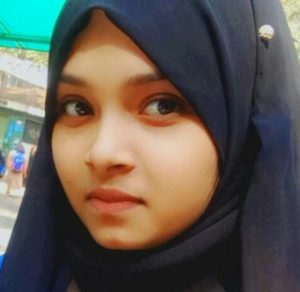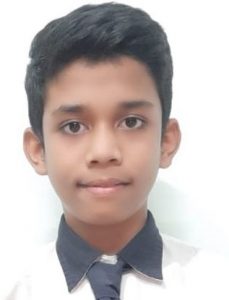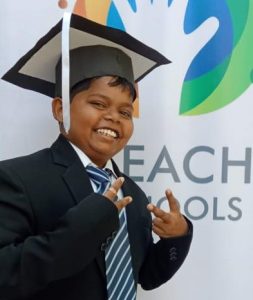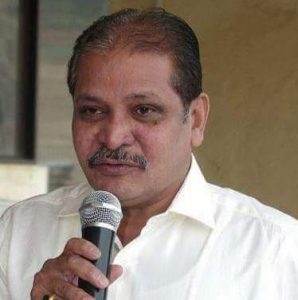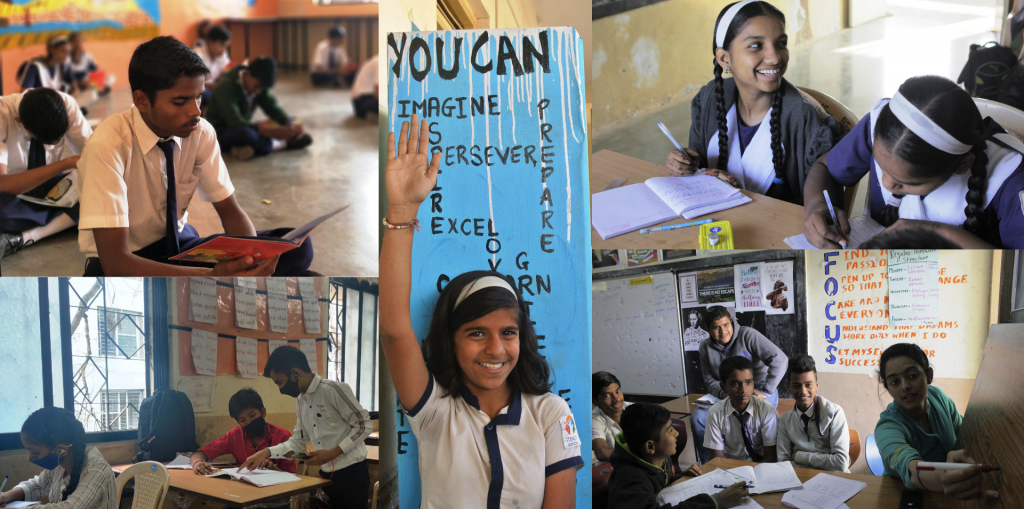
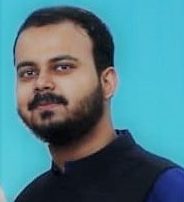
India’s education system is facing a massive crisis today. Over the past few years, we find that the Sarva Siksha Abhiyan has ensured that 98 per cent of our country’s students are enrolled in a school in Grade I; hence, the issue of access to schools is largely solved. However, when we look at what happens to these students’ academic careers as they get into higher grades, we find an alarming problem, i.e. the dropout rate. Only 26 per cent of these students make it to college.
In Pune, out of the 1216 schools, 336 are government schools, and only 54 of them offer English as a medium of instruction. None of the 54 English medium government schools in Pune goes beyond Grade VII. With students not being able to afford private schools, this leads to another crisis. Hence, children from the poorest households are left with three options – an impossible chance to get into a prohibitively expensive private school, switch to a Marathi medium secondary school (only 10 per cent capacity exists here as well) or drop out of the education system. Eventually, the majority drops out.
As per the 2019-20 UDISE+ (Unified District Information System for Education) record, there are around 10,83,678 government schools in India. More than a quarter of school children in India now study in English-medium schools, though Hindi remains the biggest medium of instruction, accounting for over 42 per cent of total enrolment.
Even before all of these statistics, we have another challenge. In Pune, out of the 1216 schools, 336 are government schools, and only 54 of them offer English as a medium of instruction. None of the 54 English medium government schools in Pune goes beyond Grade VII. With students not being able to afford private schools, this leads to another crisis. Hence, children from the poorest households are left with three options – an impossible chance to get into a prohibitively expensive private school, switch to a Marathi medium secondary school (only 10 per cent capacity exists here as well) or drop out of the education system. Eventually, the majority drops out.
UDISE+ (2019-20) data released by the Department of School Education and Literacy display the alarming dropout rate in Maharashtra.
iTeach Schools’ solution to this massive crisis is to build a community of transformational secondary schools and a College-to-Career Programme for our alumni designed to ensure that students make it to and through college. This then gives them a chance to lift their families out of poverty by preparing them for a sustainable job and livelihood.

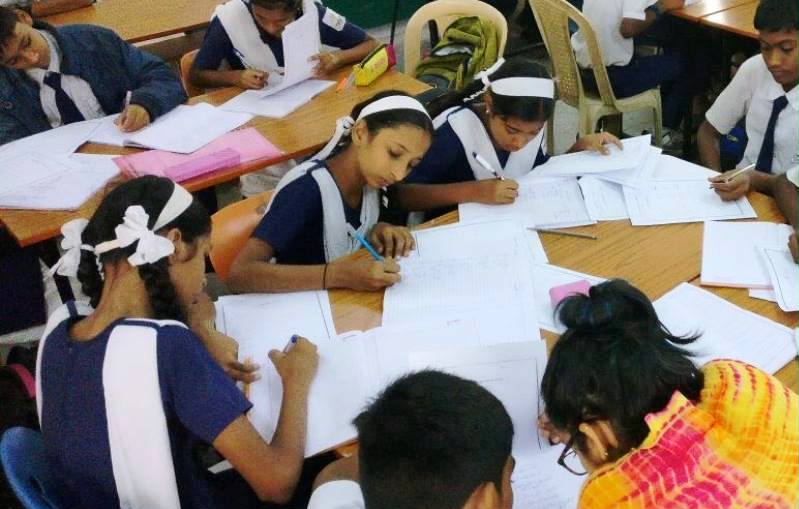 The above statistics indicate the biggest problem, leading to a crisis where students are forced to believe in the principle that it is an accident of birth; they could have been on the privileged end or the other. At iTeach Schools, we do not believe in that and want to look at it from this point of view that poverty should not dictate one’s destiny. We are on a mission to wage war on this
The above statistics indicate the biggest problem, leading to a crisis where students are forced to believe in the principle that it is an accident of birth; they could have been on the privileged end or the other. At iTeach Schools, we do not believe in that and want to look at it from this point of view that poverty should not dictate one’s destiny. We are on a mission to wage war on this 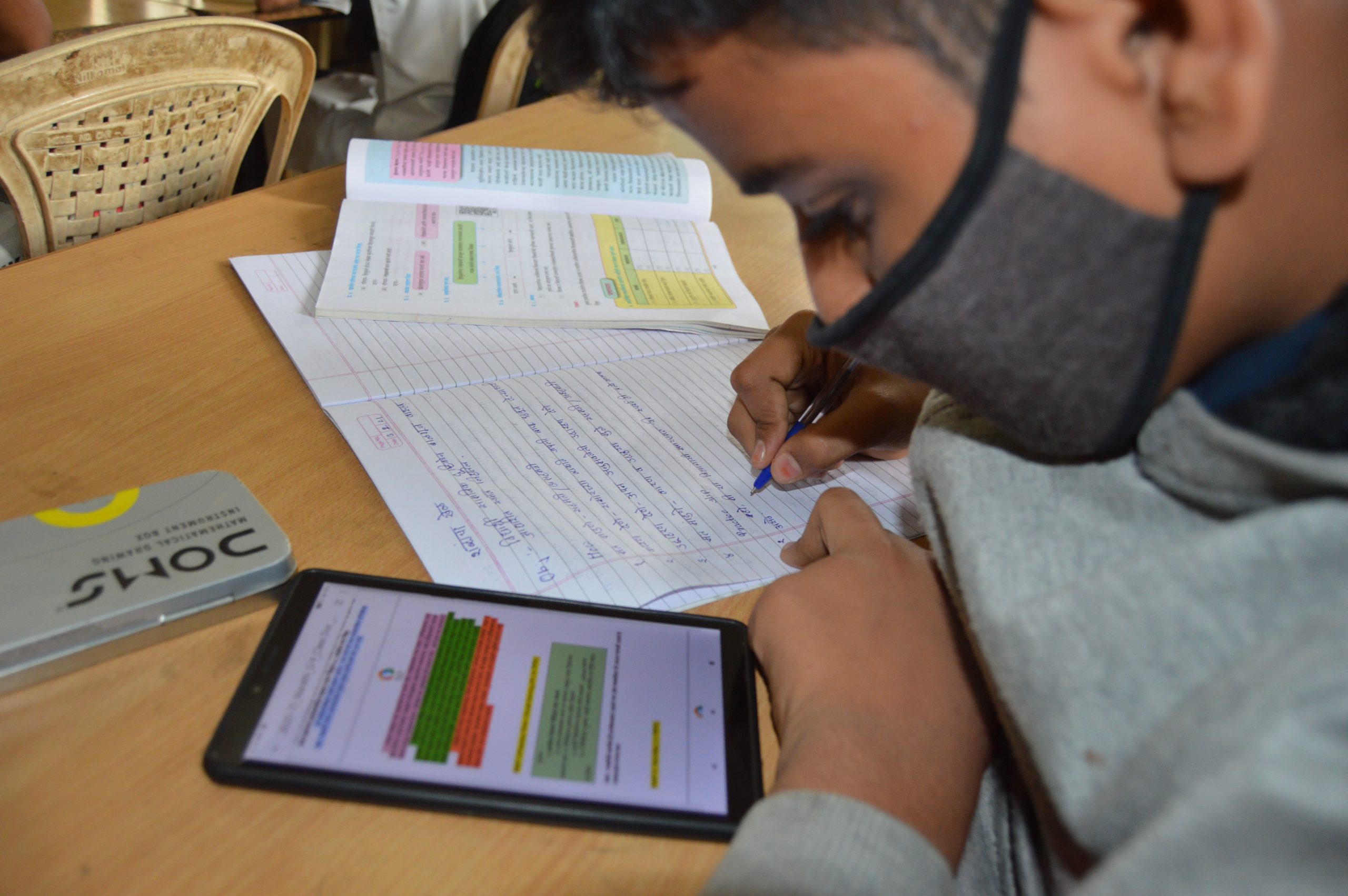 problem and are committed to levelling the playing field for all children.
problem and are committed to levelling the playing field for all children.
iTeach Schools’ solution to this massive crisis is to build a community of transformational secondary schools and a College-to-Career Programme for our alumni designed to ensure that students make it to and through college. This then gives them a chance to lift their families out of poverty by preparing them for a sustainable job and livelihood.
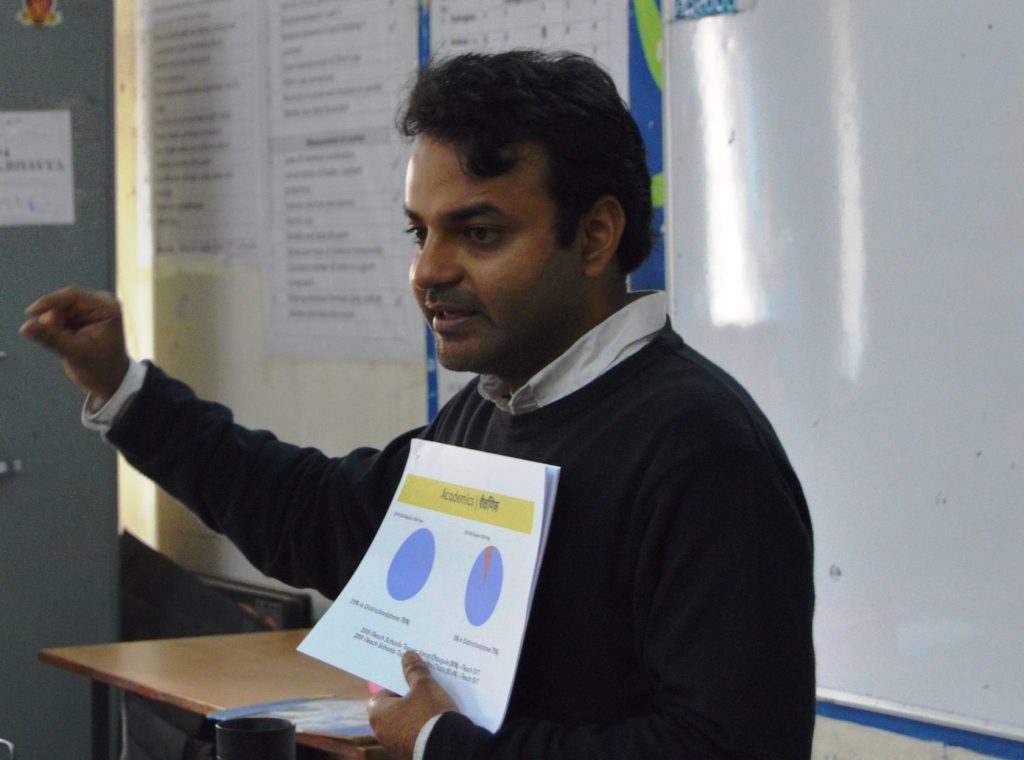 To bring about this change, we have, since our inception in 2015, established nine free secondary schools across Pune and Pimpri-Chinchwad (Aundh, Guruwar Peth, Hadapsar, Kondhwa, Mudhwa, Yerwada, Akurdi, and Kothrud). Each school functions as a nodal school for 2-3 primary schools in the area. Students are then admitted (without any selection bias) into Grade VIII at an iTeach school. Our College-to-Career Programme then supports the students until they graduate and get a sustainable job.
To bring about this change, we have, since our inception in 2015, established nine free secondary schools across Pune and Pimpri-Chinchwad (Aundh, Guruwar Peth, Hadapsar, Kondhwa, Mudhwa, Yerwada, Akurdi, and Kothrud). Each school functions as a nodal school for 2-3 primary schools in the area. Students are then admitted (without any selection bias) into Grade VIII at an iTeach school. Our College-to-Career Programme then supports the students until they graduate and get a sustainable job.
We have done well on the Grade X results each year – with 2020 results being our strongest ever. 98.2 per cent of students passed Grade X in the first attempt (cumulative of four batches). 99 per cent of our students have paid for college via scholarship or savings (sustainable and student-owned). 92 per cent of our students are still in the education system despite intense pressure to drop out (such as marriages, the rigour of college, job pressure, addictions, etc)
For the past six years, we have been delivering strong outcomes with a pass percentage of over 98 per cent. Our students are admitted into reputed colleges such as Ashoka University, Azim Premji University, and FLAME University. Since 2015, we have impacted more than 2000 students and 1500 alumni through nine schools across multiple under-resourced communities in Pune with a team of 170 staff members.
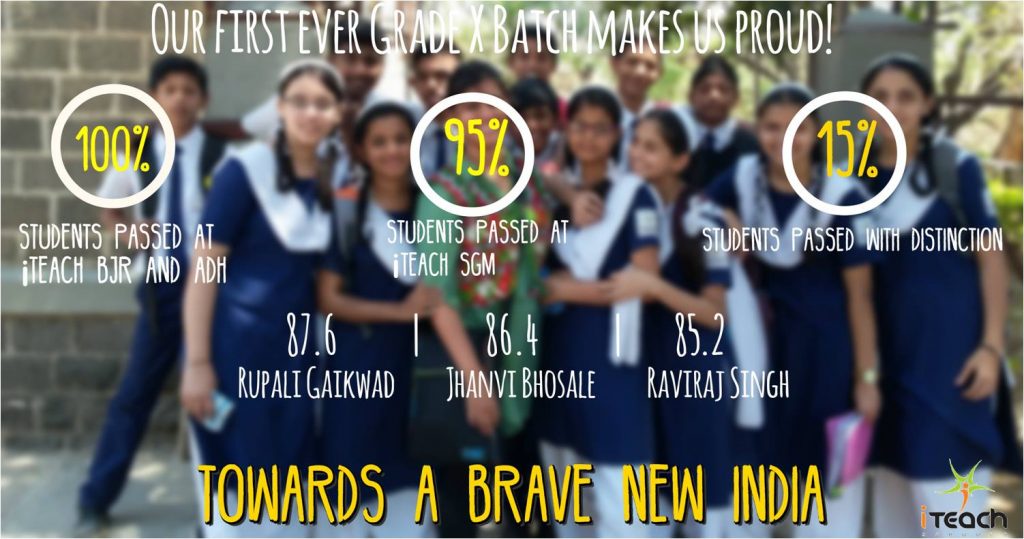
Our vision is that every iTeach graduate will:
- Make it to and through college
We have done well on the Grade X results each year – with 2020 results being our strongest ever.
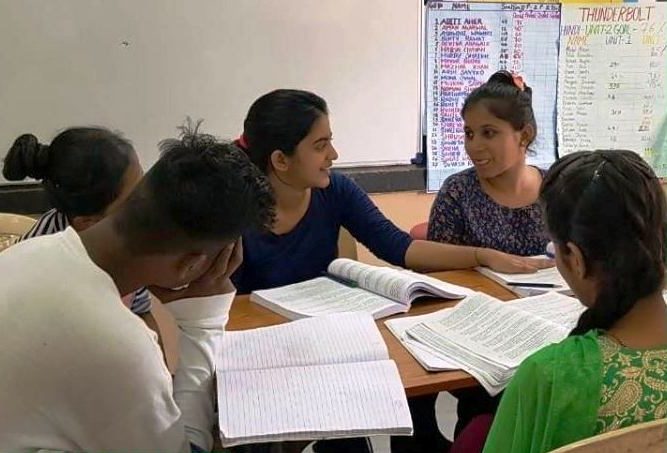 98.2 per cent of students passed Grade X in the first attempt (cumulative of four batches).
98.2 per cent of students passed Grade X in the first attempt (cumulative of four batches).
99 per cent of our students have paid for college via scholarship or savings (sustainable and student-owned)
92 per cent of our students are still in the education system despite intense pressure to drop out (such as marriages, the rigour of college, job pressure, addictions, etc)
|
- Lead a healthy and balanced lifestyle
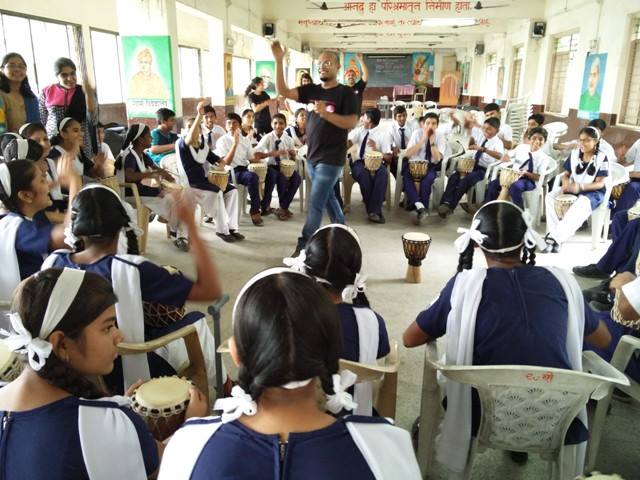 Through our five years, we have evolved our school design to include varied holistic development opportunities. About 40 per cent of a student’s time in a week is solely devoted to learning experiences outside of academics such as sports, reading, music, dance, arts, etc. We have partnered with multiple organisations that are the best in their fields to run these programmes with excellence and do it sustainably.
Through our five years, we have evolved our school design to include varied holistic development opportunities. About 40 per cent of a student’s time in a week is solely devoted to learning experiences outside of academics such as sports, reading, music, dance, arts, etc. We have partnered with multiple organisations that are the best in their fields to run these programmes with excellence and do it sustainably.
|
- Articulate their passion, ability and career choice
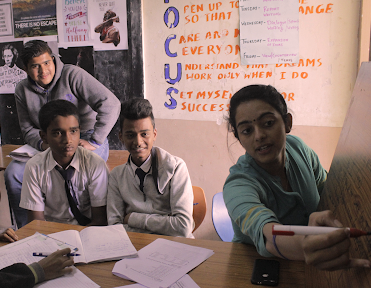 We desire to see students articulate their passions, abilities and career choices. This is something we hold very dear to us. We strongly believe that being from an under-resourced background should not deprive students of the destiny of their choice. Our 10-member Student Alumni Wing is building a student alumni network of support to ensure that each of our 1000 alums makes it through college to employment.
We desire to see students articulate their passions, abilities and career choices. This is something we hold very dear to us. We strongly believe that being from an under-resourced background should not deprive students of the destiny of their choice. Our 10-member Student Alumni Wing is building a student alumni network of support to ensure that each of our 1000 alums makes it through college to employment.
- Own India’s development
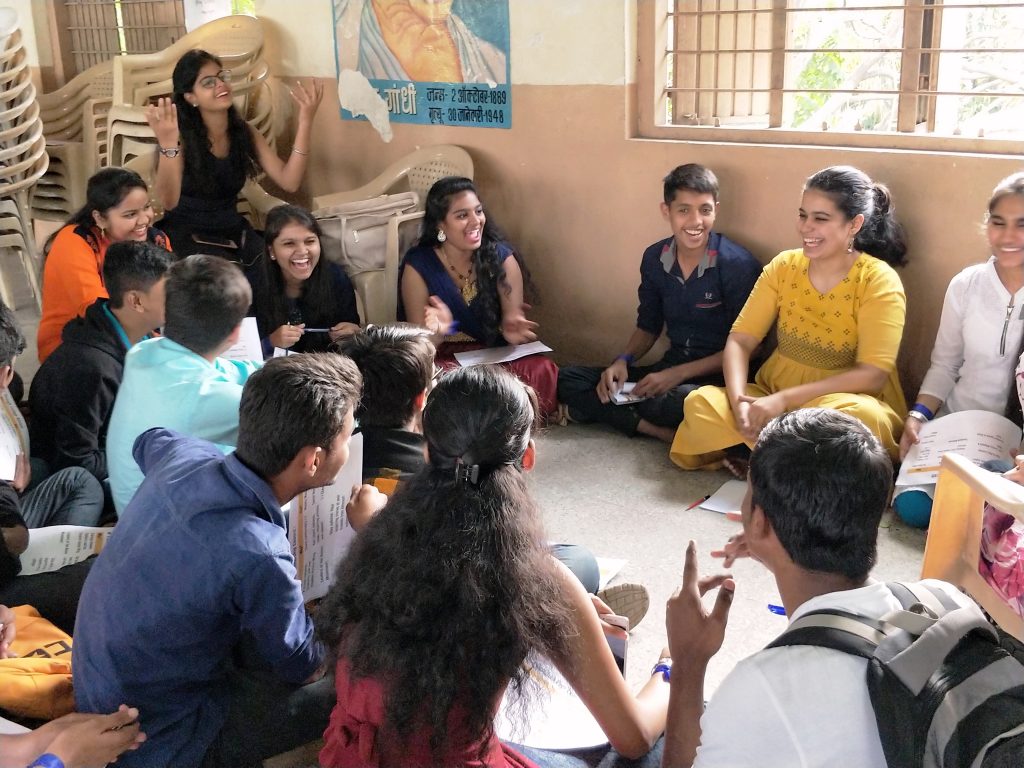 While academic excellence gets high priority, we believe that drawing connections and making inferences relevant to India’s context is paramount to becoming a well-informed responsible Indian citizen. Our Curriculum Team orients and equips students with the abilities to navigate their career, life and relationships, find their true potential and own the country’s development through their daily actions. Due to our students’ exposure to difficult situations, they have always shown resilience and courage. During their time at iTeach Schools, we align these values so they create an alternate future for themselves and their country.
While academic excellence gets high priority, we believe that drawing connections and making inferences relevant to India’s context is paramount to becoming a well-informed responsible Indian citizen. Our Curriculum Team orients and equips students with the abilities to navigate their career, life and relationships, find their true potential and own the country’s development through their daily actions. Due to our students’ exposure to difficult situations, they have always shown resilience and courage. During their time at iTeach Schools, we align these values so they create an alternate future for themselves and their country.
|
The schools are decided based on the need. We have a dedicated Government Relations Team who scouts for government-owned schools and run a need survey on them. A general thumb rule is that if government schools are ending at Grade VII and there are no government or government-aided schools nearby, we will intervene and ensure no students are dropping out due to lack of schools. First, we make sure there are provisions for classrooms to accommodate a section of Grade VIII to Grade X each, respectively. After that, we invest in the primary school to ensure that students passing out from Grade VII should get admission to iTeach Schools. Lastly, we heavily invest in the parent community surrounding the school.
The battle to achieve educational equity in India is a long one. For that, we need to expand to other regions beyond Pune. In this long journey, we will need individuals committed to our cause to come forth and take up the mantle of teaching. We want the recent graduates to understand the impending crisis of educational inequity. We want them to be a part of the solution by ensuring that more and more students see the light of day by getting the best of opportunities despite being born into the most disadvantaged conditions. We want everyone to join our movement and nurture the change-makers of tomorrow.
Our strength is in the diversity of our staff members. Over the past six years, we have recruited highly motivated individuals who want to contribute to our movement. They come from diverse backgrounds, ranging from recent graduates to trained B.Ed teachers with years of experience. We have a dedicated Curriculum and Training team that facilitates training for our teachers multiple times throughout the academic year – first when they were onboarded, second, when we conduct All Staff Meetings that happen every unit quarterly, and third, every month through sessions on digital pedagogy, behaviour management, effective data tracking, and content development.
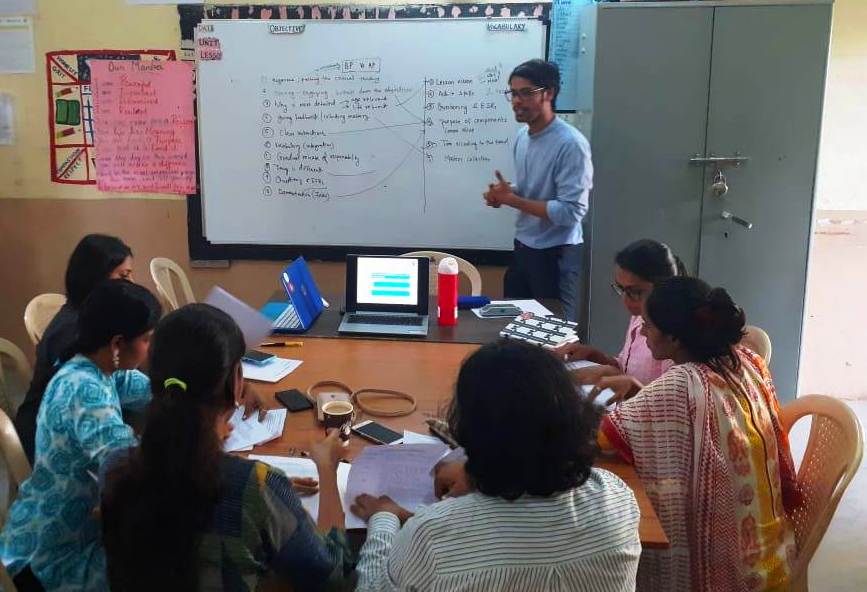
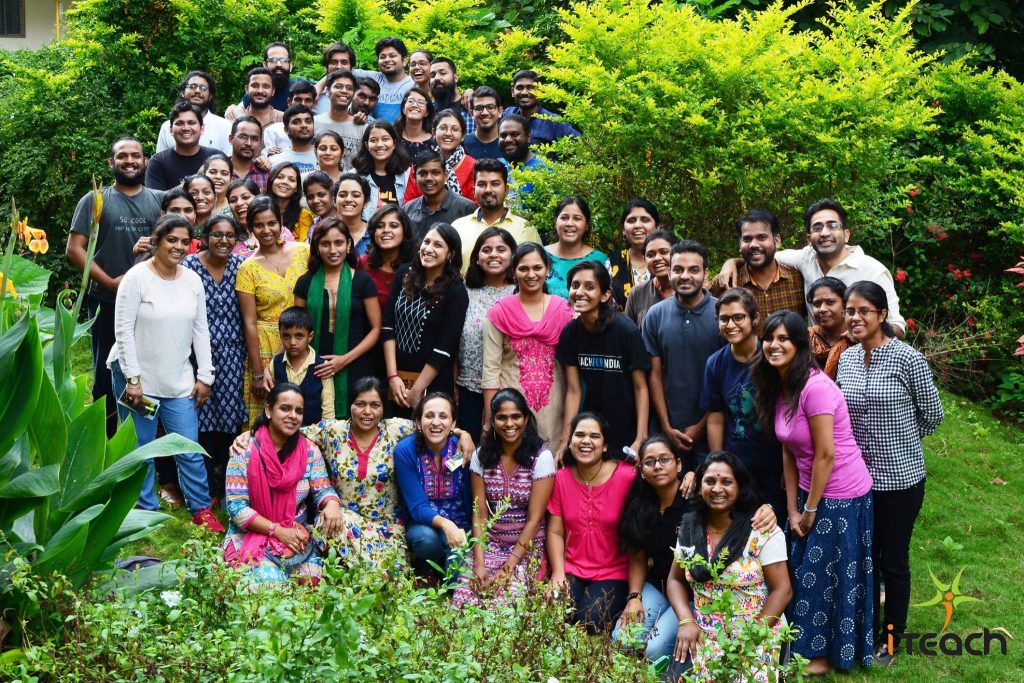
|
We have come a long way from starting in 2015 with two schools to nine schools in 2021. We feel this is just the beginning for us. The battle to achieve educational equity in India is a long one. For that, we need to expand to other regions beyond Pune. We have a vision of reaching out to 30 schools by the end of 2025. We are in conversation with multiple municipalities in other districts of Maharashtra, along with other cities, for us to venture. In this long journey, we will need individuals committed to our cause to come forth and take up the mantle of teaching. We want the recent graduates to understand the impending crisis of educational inequity. We want them to be a part of the solution by ensuring that more and more students see the light of day by getting the best of opportunities despite being born into the most disadvantaged conditions. We want everyone to join our movement and nurture the change-makers of tomorrow.


